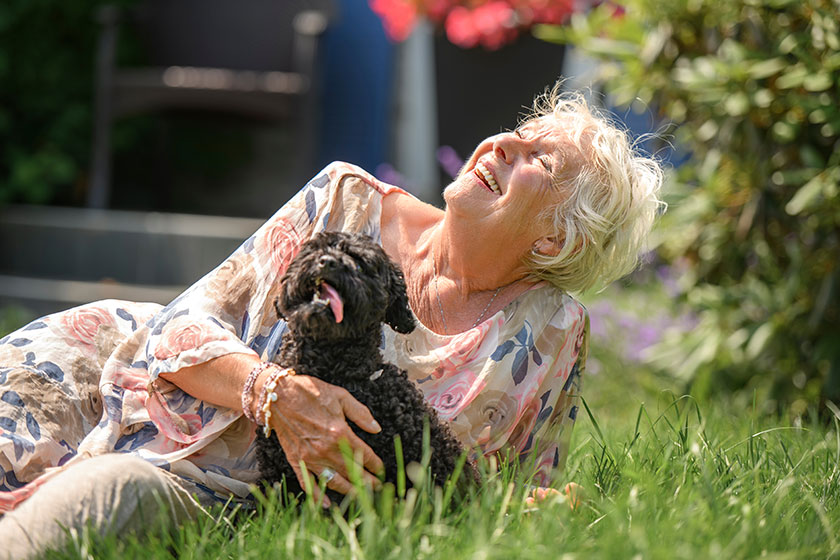Many aspects of your pet care routine will likely need to be adjusted once you enter retirement. After years in the workforce, you have finally decided to pursue the personal interests that you have always been passionate about. Many retirees in their golden years are going through the same period of transition. As we get older and spend less time at work and more time traveling and enjoying hobbies, our relationships with our pets evolve. Here are a few tips you can follow when caring for your pet in senior living apartments in Prosper, TX.
Select a Suitable Pet
When you were younger and starting a family, maybe you opted for a dog or cat so that everyone could have fun together. You might have picked a pet that is fine spending the day on its own if you work long hours.
In retirement, it is important to give thought to what kind of pet might be most useful to you and your lifestyle. Do you prefer an active dog to keep you company on walks or a small, tame dog that can be carried around? If you are looking for a cat as a companion, do you want one that plays fetch or one that sleeps on your lap while you unwind on your patio?
Understand the Needs of Older Pets
Any pets you have been taking care of for a while are aging right along with you. If you get a new pet, you may not want to housetrain a puppy or cope with the mischievous energy of a cat. When adopting a much older pet, you have complete information about its size and temperament. You can also assure a nice home and comfortable final years for an older pet when you adopt them.
Finding the Right Vet
When your schedule or location changes, you may need to switch to a different kind of veterinary. Locate a group of veterinarians who can work with you in a way that suits you best. Mobile vets can come to the retirement community to treat your pet if that is more convenient for you. Be respectful and kind at all times, but do not be afraid to express your needs. In case your pet has been a patient there for quite some time, do let the clinic know if your circumstances have changed.
Caring for Pets to Improve Health
Taking good care of pets has been shown to have positive effects on both mental and physical health as we age. In its monthly newsletter, the National Institutes of Health provides insightful information. Interacting with pets has been shown to lower stress hormones and blood pressure in humans. With a pet by our side, we feel less alone and more supported, which in turn improves our disposition and contentment. Many different species of therapy animals are used to aid those suffering from emotional and physical distress. Hence, you should indeed continue caring for your pet even during retirement.







